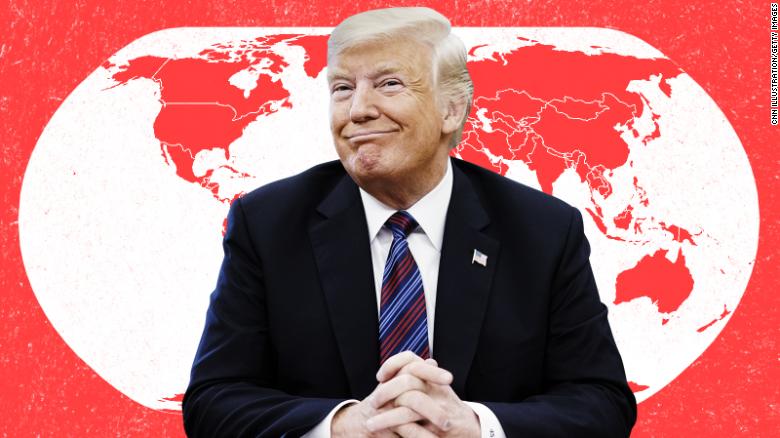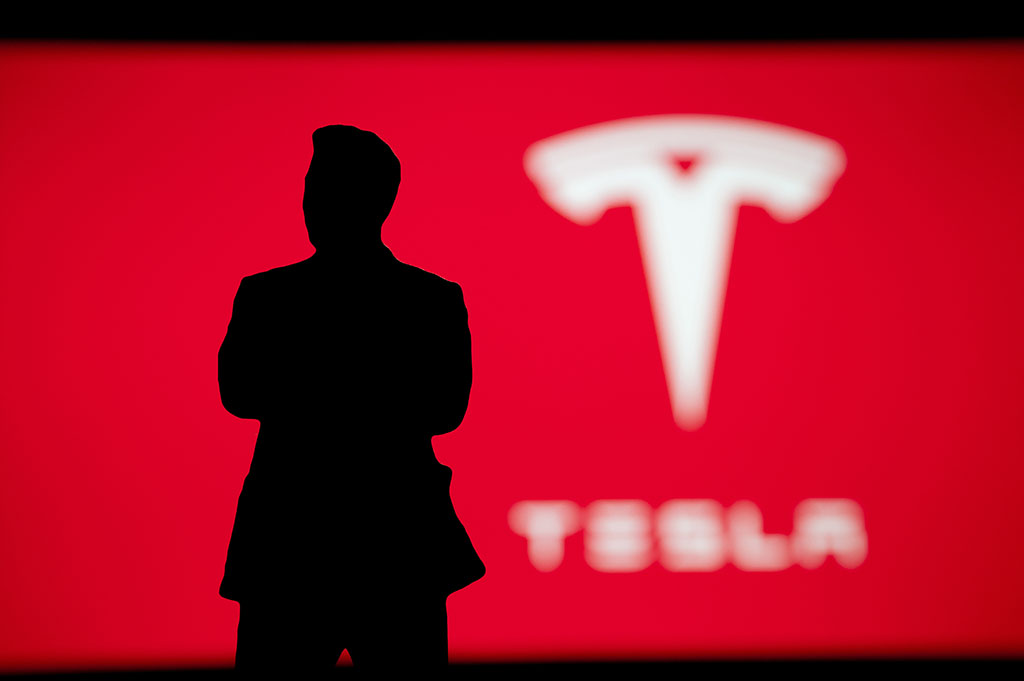Global Business Vs. Trump’s Nationalism: Google And Tesla Challenge Protectionist Agenda In India
As U.S.-based giants like Tesla and Google expand into India, Trump's 'America First' policy faces increasing irrelevance in today’s interconnected world economy.

The age of globalization has dramatically transformed the dynamics of global business and business operations, making it more challenging to stick to protectionist principles. The economic nationalism of Donald Trump, former President of the United States, emphasizing “America First” and local manufacturing over international cooperation, is being challenged by the new business reality in the modern world. No example is as strong as the increasing footprint of U.S.-based corporations like Google and Tesla in India. These incidents highlight the limits of Trump’s vision for an internationalized global economy. They are expressions of a broader trend towards global cooperation that is increasingly at odds with his protectionist agenda.
Trump’s Nationalist Economic Vision
Since the beginning of his administration, Donald Trump has promoted a nationalist economic agenda, regularly calling for laws that put American companies and people ahead of those of other countries. He withdrew the United States from global agreements like the Trans-Pacific Partnership (TPP), renegotiated NAFTA into the United States-Mexico-Canada Agreement (USMCA), and imposed tariffs on China and other countries. Trump’s economic policies aimed to reduce America’s trade deficit, bring jobs back to the US, and diminish reliance on foreign manufacturing.

And although he has long been a proponent of a “Made in America” economy, his policies have far too often been characterized by their myopia and unwillingness to recognize the nuance of the global economy. For instance, applying tariffs to imports from other nations increased US consumers’ prices without constantly boosting US output. One of the most revealing details of his time in office was his emphasis on “America First,” a catchphrase that, more often than not, involved cutting foreign trade, blocking immigration, and distancing the nation from international partnerships.
The Modern Global Economy: A Need for Interdependence
In the 21st century, the world economy operates on a level of interdependence that cannot be easily reversed. Multinational corporations depend on international supply chains and human resources from across the globe. Further, nations increasingly rely on global cooperation to deal with everything from climate change to economic disparity. This reliance has only been highlighted by the world pandemic, which clarified that there must be coordination and exchange of resources and information across borders.
The reality of the contemporary world economy is that success is not determined by local production or protectionist measures but by the capacity to innovate, collaborate, and respond to global challenges. The dominance of multinational corporations like Google, Tesla, and others in India showcases how these companies can operate in a globalized environment that transcends national borders. This international collaboration benefits these companies and the countries they invest in—like India—by providing jobs, technological advancements, and increased economic activity.
Tesla’s Strategic Move Into India
Elon Musk’s Tesla, the world’s leading electric vehicle (EV) manufacturer, is one of the most prominent examples of an American company embracing the global market despite the current protectionist rhetoric coming from the US government. Tesla has been negotiating with the Indian government to set up a manufacturing plant in India. The government of India has offered a warm welcome package to Tesla, like allowing the firm to import 8,000 cars annually at a concessional rate of importation duty of 15%, which is very low compared to the standard rate of importation duty of 110%.

This move mirrors the growing importance of India as a green automobile market and base of production for global companies. Due to its population, middle class, and need for green transport, India provides a perfect place for Tesla’s business expansion. Tesla would gain from indigenous demand by selling locally manufactured electric cars in India and helping India transition its mode of transport to clean, green transport.
However, from the perspective of Trump’s nationalist policy, this choice is problematic. Trump has long advocated policies allowing companies like Tesla to make products in the United States rather than have international production. He views investments like this one outside the US as a drain on the US economy because they seem to imply making jobs and manufacturing capacity overseas.
However, Tesla’s push into India is a testament to the dynamics of the modern global economy. As global supply chains changed, businesses have been forced to be creative and sharp in handling markets and resources. Tesla’s decision to manufacture in India rather than limiting production to the US confirms the necessity of handling emerging markets to attain long-term business objectives. It also shows just how exposed Trump’s protectionism is in an age where multinational companies are eyeing expansion into a myriad of thriving countries.
Google’s Expansion into India: A Case of Global Integration
Moreover, Google’s return to India also means that Trump’s policies of nationalism are no longer relevant in the new world economy. A state-of-the-art facility of Google, an American global computer corporation, was just opened in Bengaluru, India. The “Ananta,” or “endless,” campus symbolizes India’s growing technological influence. Google’s entry into the Indian market demonstrates India’s development as a technological incubator, talent pool, and innovation hub.

India’s rich talent pool with highly competent professionals, huge consumer base, and thriving digital infrastructure make it an attractive market for global technology giants like Google. The Google investment in the Bengaluru campus is a well-made strategic choice and indicates how much bigger India is growing in the global technology space. The action suggests how international companies are attempting to use the resources and possibilities presented by economies like India rather than going back home, as Trump’s actions mean.
For Trump, whose policies have often involved tearing up multilateral trade deals and pressuring companies to bring operations back onshore in the US, Google’s move is a direct slap in the face to his philosophy. That an American company would make such a massive gamble on an overseas market runs counter to the idea that economic success stems solely from onshore production. Instead, it indicates that corporations must operate overseas to succeed in an ever more integrated world.
Global Interdependence vs. Protectionism
The Google and Tesla cases in India raise a broader issue: that protectionist nationalism is not sustainable in today’s interconnected world. In a globalized world where technology, capital, and trade flow freely across borders, businesses must be fast and responsive, taking advantage of the finest resources and markets available without regard to nationality.
Trump’s “America First” policy of exclusion and restrictive tariffs is shortsighted in its perspective of the advantages of international interdependence. Multinationals such as Tesla and Google recognize that today’s economic success is obtained through connecting countries, stimulating innovation through international cooperation, and opening up new markets such as India. These companies are not only investing in the US economy but also shaping growth and innovation in countries across the world.

Now, the globalized world demands a shift from protectionism to cooperation. The cases of business ventures like Google and Tesla in India show the flaws of Trump’s economic nationalism and the heightened obsolescence of such policies in today’s era of interdependence. As the pace of evolution of world markets accelerates, nationalism and isolationist ideology will be forced ever more into the rearview mirror.
Conclusion: The Future of Global Business and Collaboration
Google and Tesla’s entry into India is a paradigm change in the strategic entry of multinational corporations. Their nationalist turn in the first two years of the Trump presidency is not one that incapacitates them. Rather, they see that cooperation and not isolation is the future in global business and industry. With the intensification of global interdependence, the ability to innovate, cooperate, and transform will be much more powerful than any move to revert to economic protectionism.
Trump’s protectionism and economic nationalism, as well as his nostalgic yearning to turn back the clock to 19th-century protectionism and trade patterns, are colliding with the needs of the global economy today. Companies like Tesla and Google, on the other hand, are betting on a transforming world in which global exchange and cooperation characterize ultimate prosperity. The world is transforming, and Trump’s vision is failing to keep pace.




